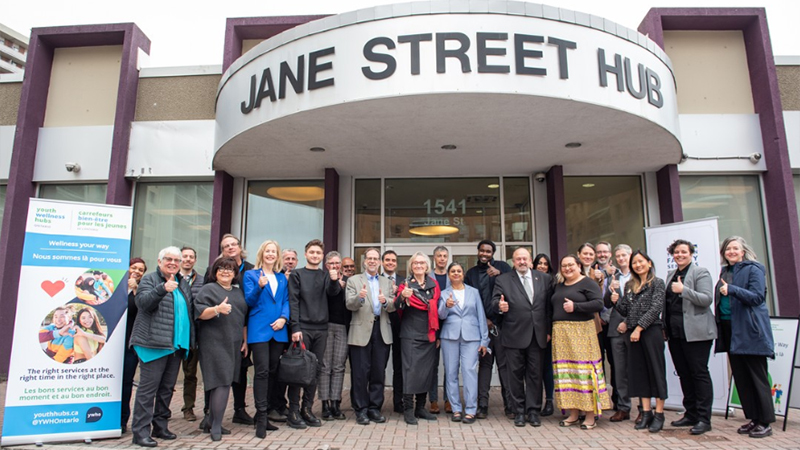Battling Canada’s Mental Health Crisis
Mary Deacon says that she “hopes every Bell Let’s Talk Post-Secondary Fund grant leads to a school environment where young people are able to get the help they need without fear of stigma or discrimination and, ultimately, flourish.”
"My colleagues call me a mental health do-gooder and I'm proud of that. It's my life's work," Mary Deacon says.
Mary is the Chair of Bell Let's Talk—the groundbreaking initiative that's given a voice to people with mental health challenges, committed over $129 million to Canadian mental health organizations, and reduced the stigma attached to mental health issues.
"I lost my two brothers to depression and suicide. You don't recover from that," Mary says. "Their deaths changed the trajectory of my life—I decided to use my skills to help other people who are struggling."
This led her to establish and serve as the first President and CEO of the Centre for Addiction and Mental Health Foundation for over a decade before becoming the force behind Bell Let's Talk. Since 2010, this mental health initiative spearheaded by telecommunications company Bell Canada has made a difference to countless Canadians in need, including Lakehead University students.
It was through the generosity of the Bell Let's Talk 2022 Post-Secondary Fund that Lakehead became one of only 16 Canadian post-secondary schools to receive a grant to support student mental health. Lakehead is using the $100,000 gift from Bell Let's Talk to establish a mental health screening program, offer additional training enabling campus community members to recognize signs of distress, develop a mental health dashboard, and launch a campus-wide anti-stigma campaign.
"I'd like to give a shout out to Lakehead and the Lakehead Thunderwolves for being involved in the Bell Let's Talk annual campus campaign since 2017," Mary says. "You were one of the early leaders in raising awareness."
In 2021, Bell Let's Talk also gave two Lakehead researchers a $25,000 grant to study the effect of COVID-19 on the physical activity and mental health of university students. It was one of 127 grants that Bell awarded to colleges and universities to help them align with the newly developed National Standard of Canada for Mental Health and Well-Being for Post-Secondary Students.
Bell Let's Talk has become even more necessary as Canadians try to cope with the fallout from the COVID-19 pandemic.
"The Canadian Alliance of Student Associations found that not only has the pandemic worsened existing mental health challenges, but in 78% of students it created new challenges," Mary says. "Youth's sense of hope about the future is not good and when people lose hope, you see an increase in suicide."

Through the Bell-Graham Boeckh Foundation Partnership and together with RBC Future Launch, Bell Let's Talk is proud to partner with the Government of Canada to support the Integrated Youth Services (IYS) Network of Networks. This initiative will help link together IYS networks around the country to improve mental health services and outcomes for all Canadian youth, involving young people and their families/caregivers every step of the way (Mary Deacon is pictured third from the left).
One of the most recognizable aspects of Bell's mental health strategy is Bell Let's Talk Day when everyone is invited to join in the conversation about mental health and Bell donates to mental health organizations.
"Our partners rely upon this day because it encourages people to reach out for help and it increases donations to the over 1,300 mental health organizations we support."
Canadian Olympic cyclist and speed skater Clara Hughes was the founding spokesperson for Bell Let's Talk Day.
"Clara was the trailblazer," Mary says. "She had the courage to be the first one to put her hand up and say that she wanted to help. When an Olympian talks about her struggles with depression—someone who is clearly not weak or lazy—it challenges perceptions of what people with mental health challenges are like and what they can accomplish."
The next Bell Let's Talk Day is happening on January 25, 2023, so Mary encourages everyone to mark their calendars and check out the links to mental health services featured on the Bell Let's Talk website.
"There's a mental health crisis in Canada and two-thirds of people still don't seek help because of the stigma," Mary says. "We need to change that."
